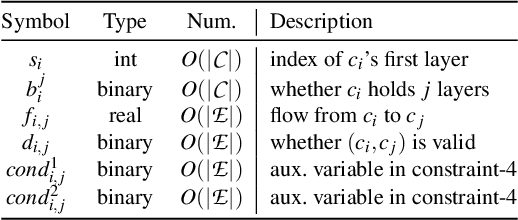Helix: Distributed Serving of Large Language Models via Max-Flow on Heterogeneous GPUs
Paper and Code
Jun 03, 2024



This paper introduces Helix, a distributed system for high-throughput, low-latency large language model (LLM) serving on heterogeneous GPU clusters. A key idea behind Helix is to formulate inference computation of LLMs over heterogeneous GPUs and network connections as a max-flow problem for a directed, weighted graph, whose nodes represent GPU instances and edges capture both GPU and network heterogeneity through their capacities. Helix then uses a mixed integer linear programming (MILP) algorithm to discover highly optimized strategies to serve LLMs. This approach allows Helix to jointly optimize model placement and request scheduling, two highly entangled tasks in heterogeneous LLM serving. Our evaluation on several heterogeneous cluster settings ranging from 24 to 42 GPU nodes shows that Helix improves serving throughput by up to 2.7$\times$ and reduces prompting and decoding latency by up to 2.8$\times$ and 1.3$\times$, respectively, compared to best existing approaches.
 Add to Chrome
Add to Chrome Add to Firefox
Add to Firefox Add to Edge
Add to Edge